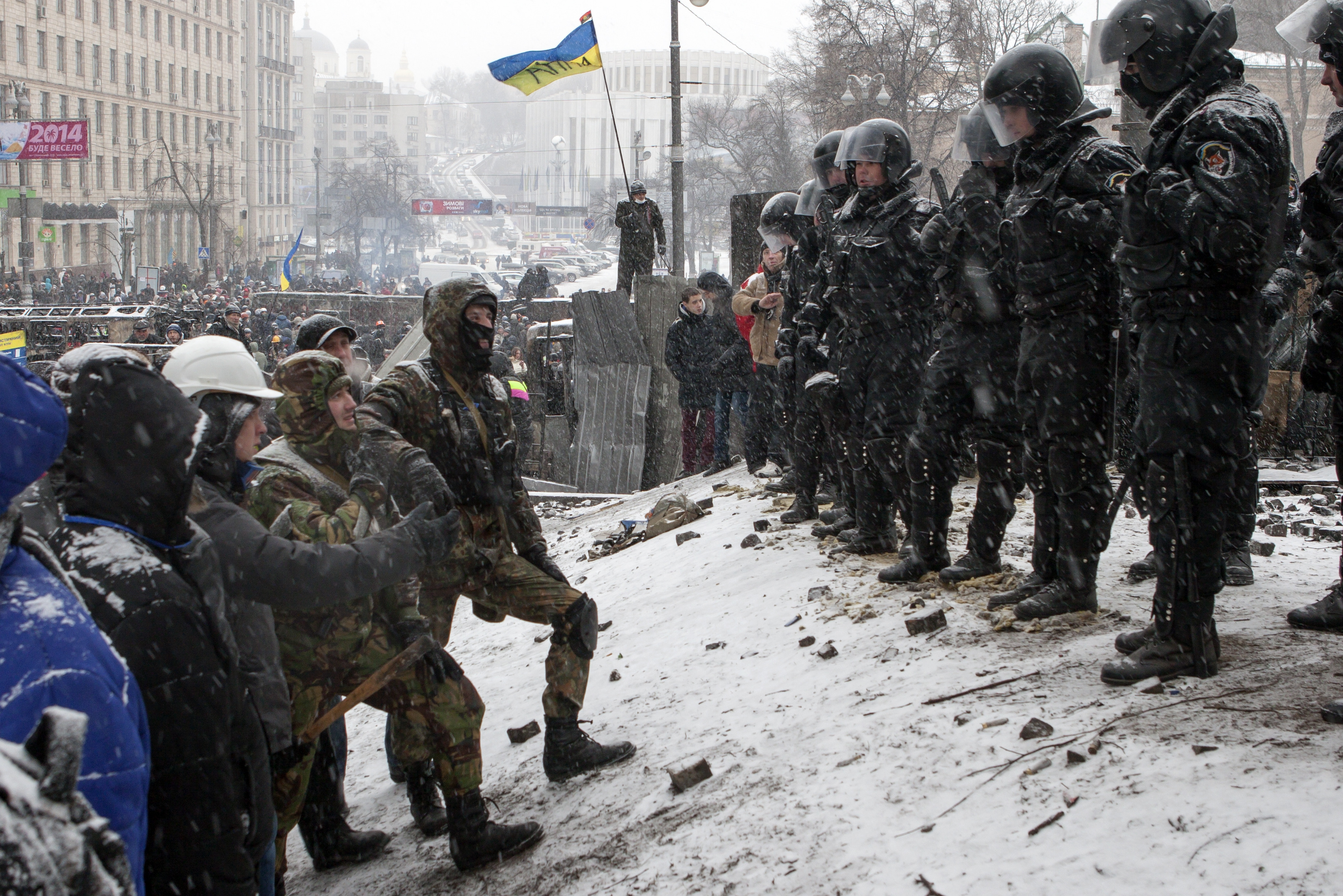Headline
2 Pro-Russia insurgents killed by Ukrainian forces

Protest against “Dictatorship& quot; in Ukraine turns violent on Euromaidan in Kiev. Against the president Yanukovych on 21 January, 2014 in Kiev, Maidan, Ukraine. File photo by S’J / Shutterstock
SLOVYANSK, Ukraine — Ukrainian forces moved in and killed at least two pro-Russia insurgents in the country’s tumultuous east Thursday, an escalation that prompted new threats from Russian President Vladimir Putin.
In an immediate reaction, Russia’s defense minister said troops massed near Ukraine’s border were starting new military exercises.
The statements by Putin and Defense Minister Sergei Shoigu sharpened anxiety over the prospect of a Russian military incursion into Ukraine. Russia’s foreign minister warned a day earlier that any attack on Russian citizens or interests in eastern Ukraine would bring a strong response.
In Kiev, Ukraine’s acting president accused Russia of backing separatists in the east and demanded that Moscow stop its intimidation campaign and leave his country alone.
Oleksandr Turchynov said in an address to the nation Thursday that Russia was “coordinating and openly supporting terrorist killers” in eastern Ukraine, where government buildings in at least 10 cities have been seized by pro-Russia gunmen.
Turchynov said Russia must pull back its troops from the Ukrainian border and “stop the constant threats and blackmail.”
In St. Petersburg, Putin decried what he described as Ukraine’s “punitive operation” and threatened Kiev with unspecified consequences.
“If the Kiev government is using the army against its own people this is clearly a grave crime,” Putin said.
Russia already has tens of thousands of troops stationed in regions along its border with Ukraine. The latest Russian military exercises will involve ground troops in the south and the west and the air forces patrolling the border, Shoigu said.
NATO Deputy Secretary General Alexander Vershbow sharply criticized Russia for making “veiled threats” and said Russia should pull its troops back to their barracks.
The Ukrainian government and the West have accused Russia of directing and supporting the insurgents and worry that Putin would welcome a pretext for a military intervention in eastern Ukraine. Putin denies that any Russian agents are operating in Ukraine, but insists he has the right to intervene to protect the ethnic Russians who make up a sizeable minority in eastern Ukraine.
Earlier in Tokyo, President Barack Obama accused Moscow of failing to live up to “the spirit or the letter” of a deal last week to ease tensions in eastern Ukraine. If that continues, Obama said, “there will be further consequences and we will ramp up further sanctions.”
With no appetite in the U.S. for a military response, Obama is largely banking on Putin caving under a cascade of economic sanctions targeting his closest associates. But the success of that strategy also depends on European nations with closer financial ties to Moscow taking similar action, despite their concern about a boomerang effect on their own economies.
“I understand that additional sanctions may not change Mr. Putin’s calculus,” Obama said on a Tokyo visit. “How well they change his calculus in part depends on not only us applying sanctions but also the cooperation of other countries.”





















